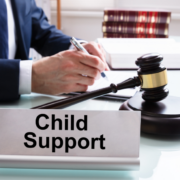Divorce may leave you wondering how you will access certain benefits you previously gained through your partner. For example, how will you navigate health insurance without your spousal benefits? Rest assured that you may have several options for securing health insurance after your divorce.
Exploring your options can help you feel more confident starting the divorce process. Your attorney can also provide valuable advice as you learn to gain financial independence from your spouse.
Other Options for Seeking Health Insurance
While sharing your spouse’s health insurance benefits may have been convenient during the marriage, this is not your only method of securing health coverage. There are other potential options for health insurance after divorce.
- Check with your employer: If you are employed, your employer may offer health insurance benefits. Check with the Human Resources department to understand the insurance options available to you. Divorce counts as a Qualifying Life Event (QLE) for many insurance providers, offering a Special Enrollment Period (SEP) that could allow you to start coverage outside the typical enrollment window.
- Explore COBRA coverage: The Consolidated Omnibus Budget Reconciliation Act could allow you to stay on your ex-spouse’s employer-sponsored health insurance for up to 36 months as long as their employer has at least 20 employees.
- The Health Insurance Marketplace: If you are not eligible for coverage through an employer, you can explore marketplace insurance, which allows you to purchase coverage directly. Premiums depend on a range of factors, such as your age, health conditions, tobacco use, etc.
Some couples choose to go through legal separation rather than divorce to maintain benefits like health insurance. While legal separation is not formally recognized in Pennsylvania or New Jersey, it is a lifestyle option to explore if staying on your partner’s health insurance is critical.
Whose Insurance Will Cover Your Children?
Divorcing couples also need to consider whose insurance will cover their children. It might make sense for the custodial parent to cover the children through their health insurance plan. This may be different from how you covered them previously.
The birthday rule dictates which parent’s health insurance acts as primary coverage for the children. It states that the parent whose birthday falls earlier in the year generally uses their insurance as the primary plan for the children. You and your spouse may choose to still follow this method of determining dependent coverage.
Will There Be a Lapse in Coverage?
In Pennsylvania, it can be challenging to predict exactly what day your divorce decree will be finalized. It is up to the judge who is overseeing your case.
Setting up insurance to start on the day your shared coverage ends might not be doable. Consider whether there might be a lapse in coverage and whether you want to look for temporary coverage to fill the gap.
Seek Divorce Assistance From Karen Ann Ulmer, P.C.
Navigating health insurance after divorce is just one of the many challenges that often arise during this process. Karen Ann Ulmer, P.C., helps divorcees start moving forward. For a confidential consultation, contact us today at (866) 349-4117.












